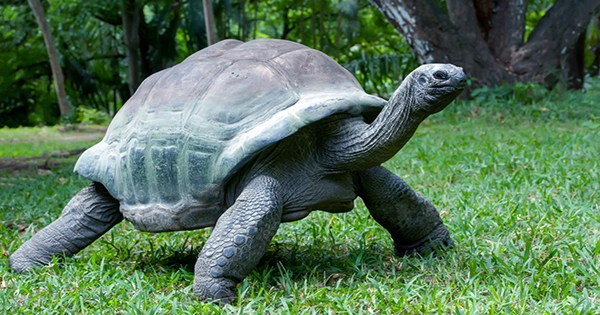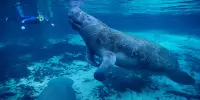Ageing is a reality of life, except apparently for turtles. Several turtle species exhibit relatively low senescence, which is what we properly refer to as the physical aging of our bodies, according to data from two new studies. Turtles seem to be immune to the degeneration and aging process. Testudines, the order of reptiles that includes turtles, terrapins, and tortoises, have been seen to have the capacity to slow down and even turn off senescence. One well-known example is Jonathan, the world’s oldest living land mammal, who, at 190 years old, still engages in sexual activity with both male and female partners while displaying little signs of aging.
The scientists collected information from multiple lengthy field experiments that concentrated on 77 species from 107 wild populations in one of the brand-new studies, which was released in the journal Science. These comprised amphibians, snakes, and crocodilians in addition to turtles and tortoises. In comparison to birds and mammals, these cold-blooded creatures displayed a broader variety in aging rates, and researchers think that in the case of turtles, their bone shell and sluggish pace of life (after the first reproduction) might help explain why they age so slowly—or not at all.
“Because they aren’t being eaten by other animals, these diverse defensive strategies can lower animal death rates. They have a higher likelihood of living longer, which puts pressure on them to age more slowly. Turtles provided the strongest evidence for the protective phenotype hypothesis that we could find. Once more, this shows how distinctive turtles are as a species, according to lead author Beth Reinke, an associate professor of biology at Northeastern Illinois University.
The study discovered at least one species with little to no senescence in every category, including frogs and toads, crocodilians, and obviously turtles. However, being cold-blooded does not ensure a lack of aging. “It seems dramatic to claim that they don’t age at all, but basically, after they’re past reproduction, their chance of dying does not alter with age,” said Reinke.
Better environmental circumstances are associated with even slower aging, according to the second research, which was also published in Science. They examined 52 species of turtle, terrapin, and tortoise living in zoo populations and discovered that 80% of them age more slowly than contemporary people and that 75% exhibit gradual or insignificant senescence.
Contrary to popular aging beliefs, we demonstrate that a variety of turtle and tortoise species have discovered a mechanism to slow down or even turn off senescence. This indicates that not all species experience senescence, according to main author Rita da Silva, who was a student at the University of Southern Denmark at the time the research was completed.
In contrast to humans, who have a chance of dying before their next birthday of around 1 in 1,000 in their 30s, the danger for these creatures does not alter as they age. They may still die from illnesses, mishaps, or predators, but the chance is the same whether they are 10 or 130. With age, the Black Marsh turtle’s danger of passing away actually diminishes. Studies looking at whether it’s feasible to slow down senescence in humans have produced encouraging findings in mice.














